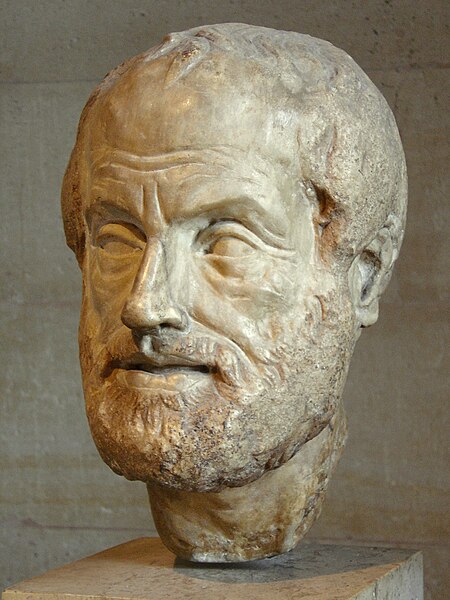
The
Stanford Encyclopedia of Philosophy entry on Aristotle is available if you're using a computer at PSU. The following information is pasted straight from the Wikipedia entry:
Aristotle was born in Stageira, Chalcidice in 384 BC. His father, Nicomachus was the personal physician to King Amyntas of Macedon. Aristotle was trained and educated as a member of the aristocracy. At about the age of eighteen, he went to Athens to continue his education at Plato's Academy. Aristotle remained at the academy for nearly twenty years, not leaving until after Plato's death in 347 BC. He then traveled with Xenocrates to the court of his friend Hermias of Atarneus in Asia Minor. While in Asia, Aristotle traveled with Theophrastus to the island of Lesbos, where together they researched the botany and zoology of the island. Aristotle married Hermias's adoptive daughter (or niece) Pythias. She bore him a daughter, whom they named Pythias. Soon after Hermias' death, Aristotle was invited by Philip of Macedon to become tutor to Alexander the Great.
After spending several years tutoring the young Alexander, Aristotle returned to Athens. By 335 BC, he established his own school there, known as the Lyceum. Aristotle conducted courses at the school for the next twelve years. While in Athens, his wife Pythias died, and Aristotle became involved with Herpyllis of Stageira, who bore him a son whom he named after his father, Nicomachus. According to the Suda, he also had an eromenos, Palaephatus of Abydus.
It is during this period in Athens when Aristotle is believed to have composed many of his works. Aristotle wrote many dialogues, only fragments of which survived. The works that have survived are in treatise form and were not, for the most part, intended for widespread publication, as they are generally thought to be lecture aids for his students. His most important treatises include Physics, Metaphysics, Nicomachean Ethics, Politics, De Anima (On the Soul) and Poetics. These works, although connected in many fundamental ways, vary significantly in both style and substance.
Aristotle not only studied almost every subject possible at the time, but made significant contributions to most of them. In physical science, Aristotle studied anatomy, astronomy, economics, embryology, geography, geology, meteorology, physics and zoology. In philosophy, he wrote on aesthetics, ethics, government, metaphysics, politics, psychology, rhetoric and theology. He also studied education, foreign customs, literature and poetry. His combined works constitute a virtual encyclopedia of Greek knowledge. It has been suggested that Aristotle was probably the last person to know everything there was to be known in his own time. Upon Alexander's death, anti-Macedonian sentiment in Athens once again flared. Eurymedon the hierophant denounced Aristotle for not holding the gods in honor. Aristotle fled the city to his mother's family estate in Chalcis, explaining, "I will not allow the Athenians to sin twice against philosophy," a reference to Athens's prior trial and execution of Socrates. However, he died in Euboea of natural causes within the year (in 322 BC). Aristotle left a will and named chief executor his student Antipater, in which he asked to be buried next to his wife. It has also been proposed that Aristotle's banishment and death resulted from the possibility that he was involved with the death of Alexander.
 The Stanford Encyclopedia of Philosophy entry on Aristotle is available if you're using a computer at PSU. The following information is pasted straight from the Wikipedia entry:
The Stanford Encyclopedia of Philosophy entry on Aristotle is available if you're using a computer at PSU. The following information is pasted straight from the Wikipedia entry:
1 comment:
I personally appreciate the time and effort you took into putting it all together. If you are reading this comment, you are lucky enough to go for the cheap essay writing service from our company and free yourself from excessive worries connected with writing! Thank you for providing this information.
Post a Comment